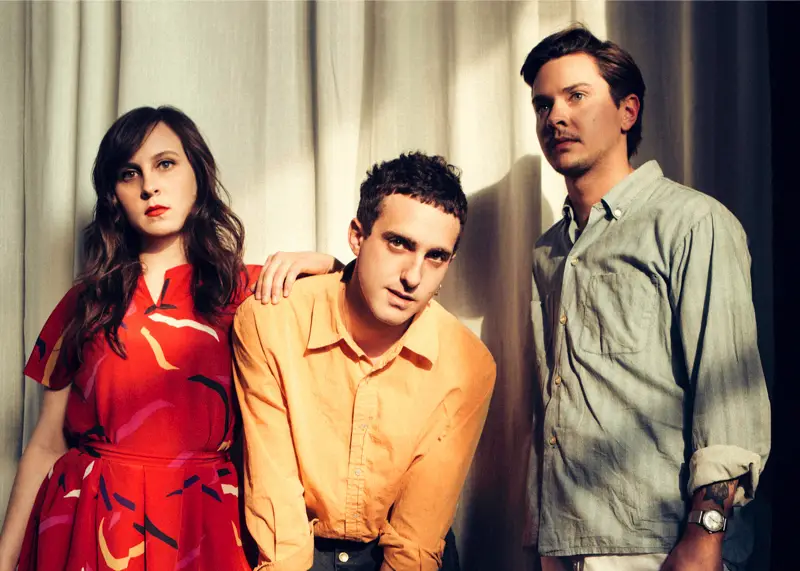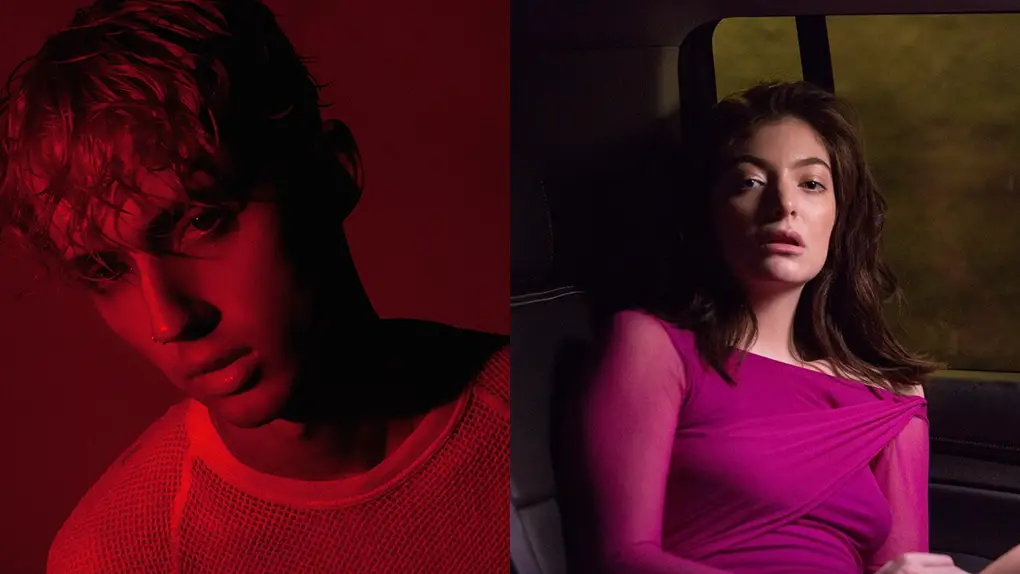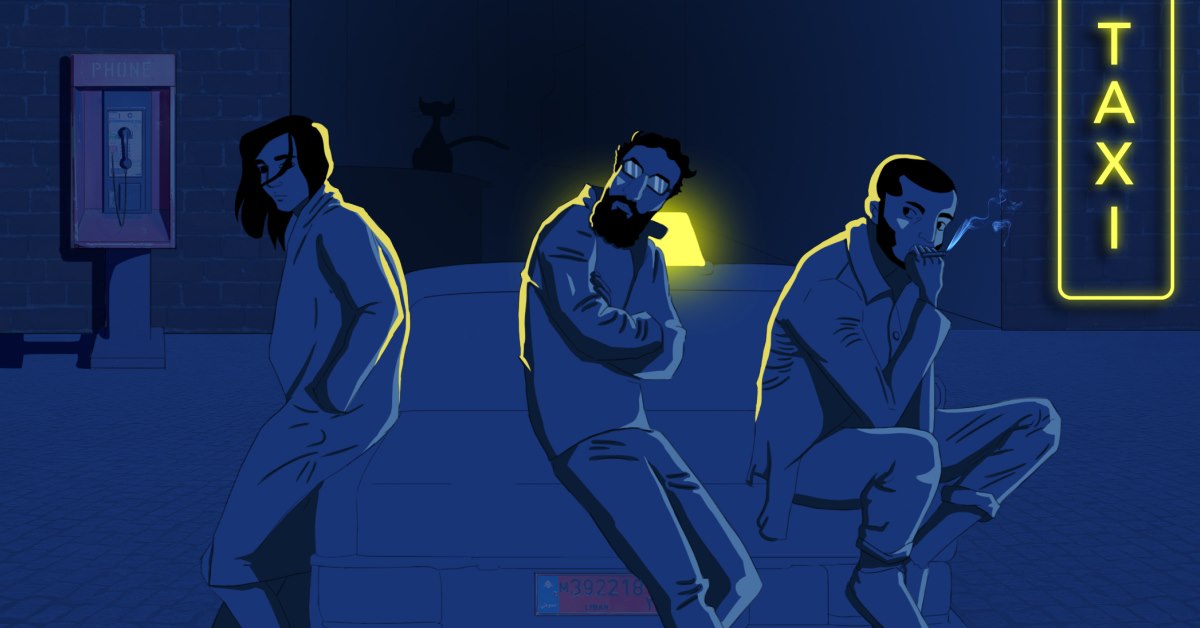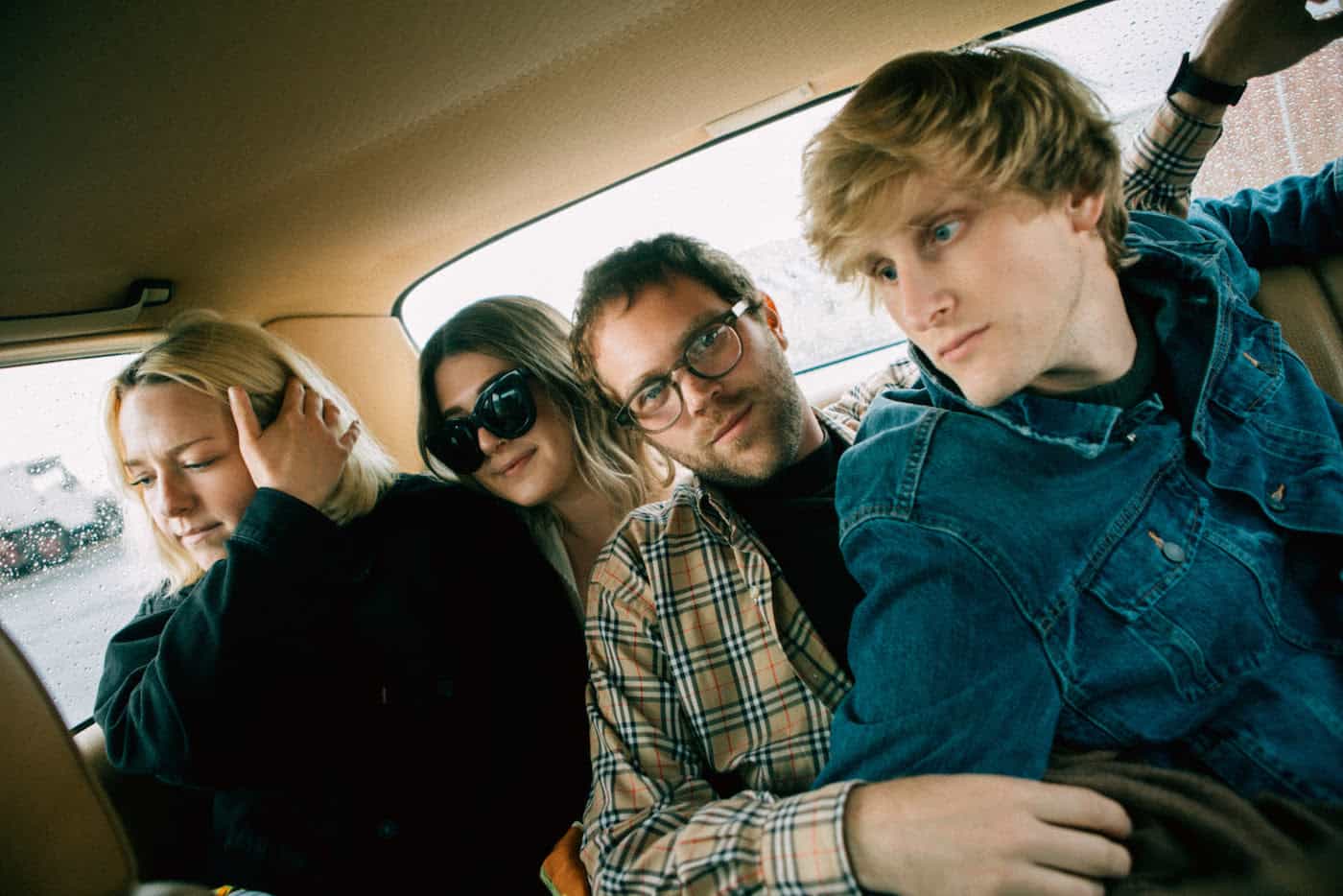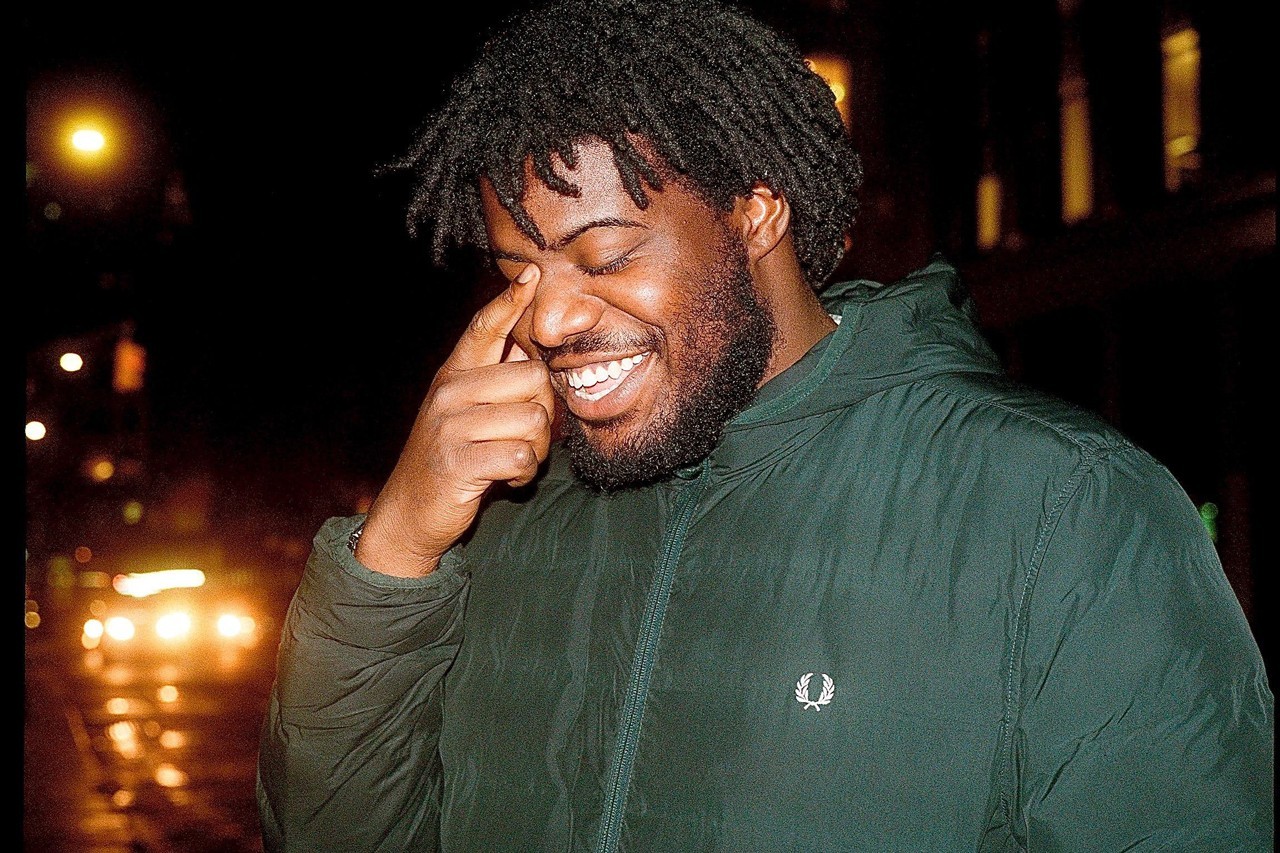Washington, D.C. band Flasher are breaking away from the threshold of genre by creating a multisensory experience on their full-length debut album.
— —
Flasher make a whirlpool of music that sweeps you up, takes you hold, and doesn’t let go until it stops. The Washington, D.C. band made up of guitarist Taylor Mulitz, drummer Emma Baker, and bassist Daniel Saperstein don’t make music for genre’s sake. They fuse post-punk, shoegaze, new wave, and even pop to create vigorous, kinetic songs that speak to universal anxieties.
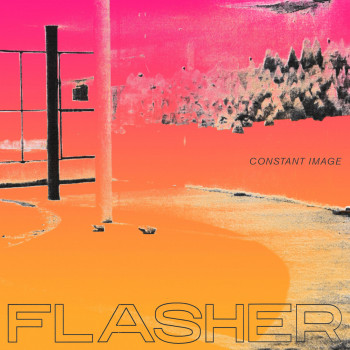
After signing with Domino Records, Flasher found themselves cleaning up their lo-fi sound on their full-length debut album Constant Image. Recorded at a studio in Brooklyn, NY, they worked with indie producing juggernaut Nicolas Vernhes (Animal Collective, Deerhunter, War on Drugs) and worked to create one of 2018’s best albums.
Flasher creates frantic and chaotic melodies that contrast with shimmery, vibrant tones. Their vocal roles are shared, matching and overlapping their voices to constantly shift your ears’ focus. Atwood Magazine sat down with Mulitz, Baker, and Saperstein before their show in Portland, Oregon to talk about setting genre aside and using their anxieties as fuel to create their debut album.
A CONVERSATION WITH FLASHER
ATWOOD MAGAZINE: YOU ALL GREW UP WITHIN D.C.. WHAT BROUGHT YOU TOGETHER TO FORM FLASHER?
Taylor Mulitz: Emma’s the band historian.
Emma Baker: Danny and I started a band in high school…
Taylor: First we were all born!
Emma: Everyone was born in around DC. Danny and I started a band. It was the first band I ever played in, when I started learning how to play drums, called Sad Bones. That was when I was like 16, 17, something like that. We’d known each other for a really long time because our parents go way back. Then we met Taylor…
Taylor: I came to one of their performances.
Emma: We were playing an acoustic show in a friend’s attic. Taylor came with a mutual friend of ours.
Taylor: But we all went to different high schools so we met each other through music. Except Emma and Danny knew each other because of their parents.
Daniel Saperstein: Yeah, but they don’t feel very pressuring. They feel very dismissible.
Taylor: I’m going to say no to be honest with you. It’s so diverse. Maybe the signature sound is that it’s all good.
Emma: Or that it’s all recorded by the same 3 people.
Taylor: Yeah!
Taylor: It changes day to day. I mean for this record, I think some of the touchstone influences were The B-52’s, this record Whammy!, Stereolab, Broadcast, Autolux, Blood Orange, My Bloody Valentine…
Taylor: Yeah, The Breeders are one too. They’re a big influence. There’s a song on the record that we’d refer to as “Breeders” for like..
Emma: Until we had to name it. Making that work for the record.
Daniel: Definitely, though I think in a lot of Taylor’s first examples, ironically a lot of the influences are more like post-2000 or not quite new wave, or something like that, but the thing that ties them all together whether it’s like Blood Orange or like Prince or the B-52’s or My Bloody Valentine, it’s more about some kind of deep attention paid to the objects. Curating objects that make up the field of sound and being really deliberate about having unique sounding objects. I think that was something we talked about a lot. That transcends any of those genre boundaries and often has a lot more to do with techniques of recording and how much they play a role in song writing. Which definitely for us is a big big thing.
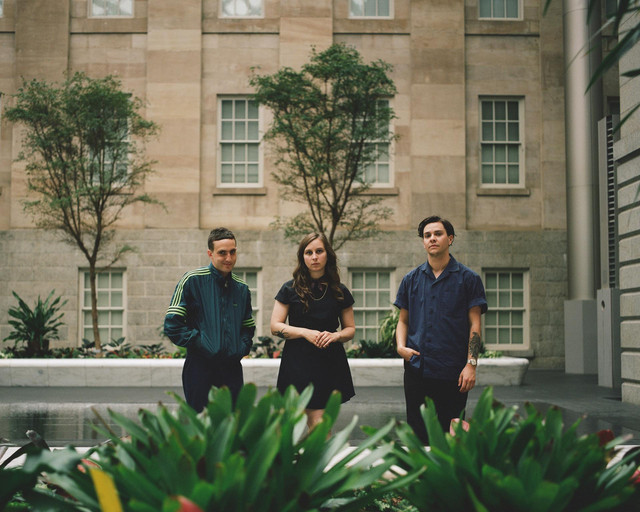
Daniel: Sure.
Taylor: Yeah I would say so. We aren’t really the people that place genres on ourselves.
Daniel: We just don’t really talk about genre.
Emma: Or we don’t go to write a song and be like, “What do we want this song to sound like?” It’ll sound how it sounds.
Taylor: Or if there’s something in it that reminds us of a specific band but it’s never the intention from the start.
Daniel: Definitely, genre is not a reference that comes naturally for us to even consider.
Daniel: I personally have been considering if that’s true, then what is the point? Or how do you maybe appropriate the tendency or urge or the intention of having a notion like genre. It’s something that we can use not necessarily to pigeonhole the musical dimensions of the music but to collapse the distinction between the political or ethical dimensions of the music or the conditions under which the music is made and then the way it sounds. So like punk, I still first and foremost identify Flasher as a punk band but that has a lot less to do with references to other musical styles as much as an attitude towards the ethic around making music and the expectations that you hold yourself to as a musician.
Taylor: It has been really smooth. Domino in particular, the team of people we work with are so amazing. It’s been really insightful to see how things work. Just because with Sister Polygon, for so long it’s been kind of make it up as you go and just now we’re kind of figuring out world wide distribution and toying with the idea of ‘Oh okay if we’re gonna scale up our operation and try to break through this ceiling, so to speak, of releasing things on the same scale as some of these other labels.’
Daniel: Especially distribution alone.
Taylor: Yeah, just the types of expectations you have from artists in terms of timeline and the way things roll out. That has been one of the biggest things I’ve learned is that when you’re doing something on a bigger scale it’s so much more time for it to get released. We recorded last November and the album came out in June. Whereas there have been projects that we’ve released through Sister Polygon, Flasher being one of them, where the EP we finished recording it in March and then we went on tour in April and had the cassettes all ready. So it’s super fast and was a lot more of an ‘Okay, let’s just put it out into the world and see what happens’ or like it doesn’t really matter.
Daniel: It takes so much work just to release it at all. On a bigger scale you have more options about negotiating how you want to release it and what you want to do around the release.
Taylor: It’s a lot more planning. With Sister Polygon now we’re starting to do that. So it’s been really really helpful.
Daniel: Taylor was talking about earlier today in another interview about how band names can often, you know, they feel good in the moment but they don’t really stand the test of time. And I think we were interested, having just put so much work into the record, with the overarching intention to make it quote on quote timeless as possible, to at least try to make it so that it would stay open to people to listen to it and feel like they could participate in making sense of it for a long time. We wanted to find a name that spoke to that. And spoke to the kind of combination of visual multisensory experience of listening to a record, thinking about a record, thinking about what it means to you, thinking about the people who made it, thinking about the ways it might inform other new ideas you have. Constant Image felt like it was provocative of something like that.
Taylor: Yeah, kind of like a philosophical relationship between the music and the listener and the people that are, the musician and the listener and the objects in the music to themselves are constantly being reflections of each other and therefor are influenced by that.
Daniel: I was really struck with the notion of, which I think we talk a lot about the songs we make, but if you have only finished something so that you could only be like that is good or that is a song, getting it to a spot where maybe the more relevant question is ‘What can that song do?’ I think Constant Image kind of reorients us to think about, at first, ‘Wait, what is a constant image? Oh wait, maybe that’s not the right question. Maybe it’s what can a constant image do? What is it doing that makes it constant?’ As opposed to just ‘It is an image’ or something like that. I know that sounds abstract because there’s a lot of content around it but, I think abstractly that’s the affect that we wanted to imbue.
Taylor: I think that kind of just happened really naturally because we’re all extremely anxious and we were under a lot of stress.
Daniel: I would say work with what you’ve got.
Taylor: I don’t think any of us consider ourselves to be singers first and foremost so its been like a constant project to learn how to use our voices in new and interesting ways that challenge us and also feel comfortable and sound cool. It felt really great to learn that we could all sing together and then kind of become one instrument which is like this combination of the three of our voices. Which we couldn’t do on our own.
Daniel: A constant project to imagine our voices. Ah well well.
Taylor: I would say it’s all pretty personal. It’s about experiences that I think most people can relate to.
Daniel: Yeah, I think maybe monologue is internal but it isn’t a monologue. It’s an internal conversation. It’s when faced with the fact that there is no one voice inside of you. Just like being in a band.
Daniel: I don’t think we really had a choice. We were just trying to be accountable to the fact that if you don’t have a choice, then trying to take seriously how you’re going to address that as a constant presence making music in your day to day life. It’s like trying to be responsible to the fact that you don’t get to choose whether you live inside or outside of capitalism.
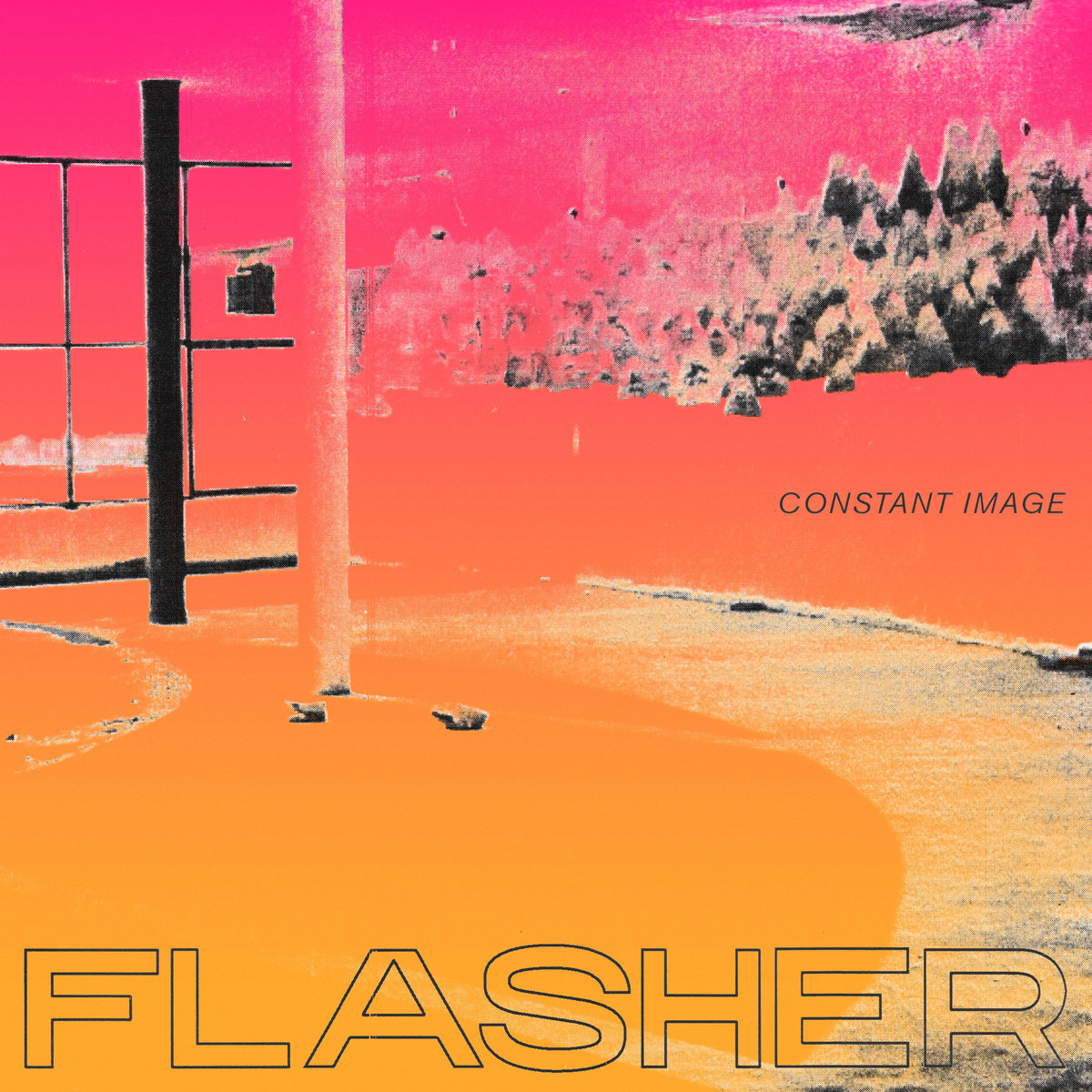
Taylor: It’s a roller coaster of emotion.
Emma: Yeah, sometimes it’s amazing and sometimes it really feels like shit.
Taylor: Right now though I think we’re all feeling good. The last two shows that we played were awesome. The one in L.A. was with Darto and this band French Vanilla from L.A.. Then in San Francisco we played with Darto and Cold Beat, they’re amazing too. Then I think tonight’s going to be great so we’re off to a good start. It can only go downhill from here!
Daniel: These are definitely ideal trips for us.
Emma: You mean rough like physically rough? Not like a shitty response.
Taylor: Yeah luckily if they come to our shows most people just stand with their arms crossed. No, that’s not true, people dance but nobody moshes. Our fans are pretty respectful in general.
Daniel: As far as what we can do as a band is shut that the fuck down.
Taylor: Yeah, if I ever were to see someone pushing another person, this happened before, this happened more times with Priests, but we’ll sometimes stop in the middle of a song and be like, ‘Stop doing that.’ You know, just really call someone out because you can tell when people are into it and when they’re not.
Daniel: And if you can’t tell, you’ve gone too far.
Emma: We have another little tour back East when we get home. We’re playing Athens Pop Fest in Georgia and then touring around that. Then we’re going to be writing for a little bit. Then we go to Europe in November.
Taylor: Yeah, it should be fun.
Taylor: Spain.
Emma: Yeah, I think Barcelona’s gonna be a very fun show.
Taylor: Yeah our shows in Barcelona and Madrid are going to be with Hot Snakes so that’ll be cool.
Emma: They’re gonna be very poppin’. Then we have something else we’re playing for December that’s a secret right now. But we’re really excited about it.
— — — —
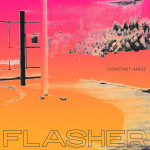
Connect with Flasher on
Facebook, Twitter, Instagram
Discover new music on Atwood Magazine
? © Jen Dessinger

